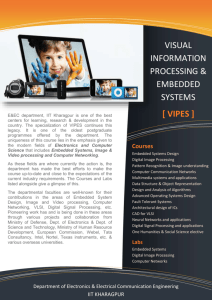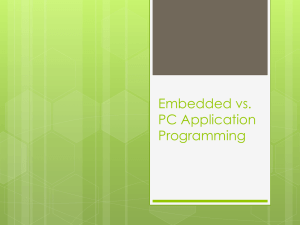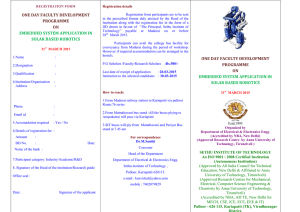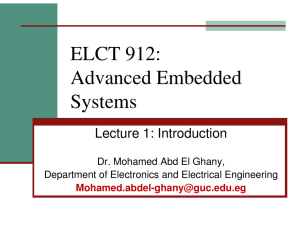Electrical Computer - University of Colorado Boulder
advertisement
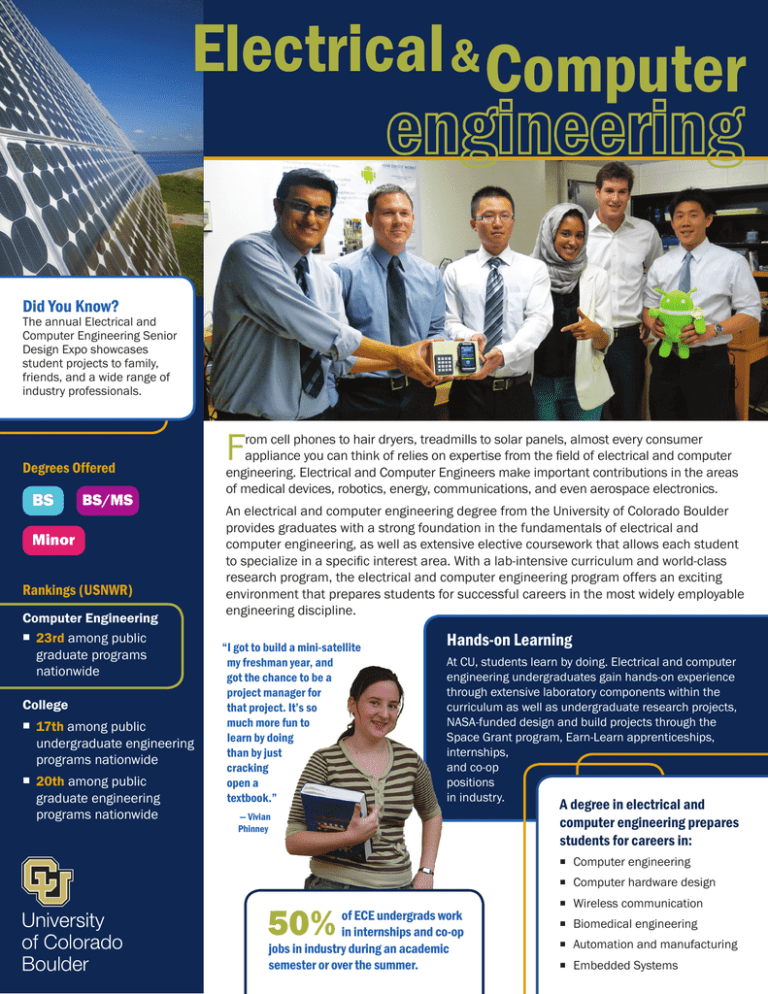
Electrical & Computer Did You Know? The annual Electrical and Computer Engineering Senior Design Expo showcases student projects to family, friends, and a wide range of industry professionals. Degrees Offered BS BS/MS Minor Rankings (USNWR) Computer Engineering ■ 23rd among public graduate programs nationwide College ■ 17th among public undergraduate engineering programs nationwide ■ 20th among public graduate engineering programs nationwide F rom cell phones to hair dryers, treadmills to solar panels, almost every consumer appliance you can think of relies on expertise from the field of electrical and computer engineering. Electrical and Computer Engineers make important contributions in the areas of medical devices, robotics, energy, communications, and even aerospace electronics. An electrical and computer engineering degree from the University of Colorado Boulder provides graduates with a strong foundation in the fundamentals of electrical and computer engineering, as well as extensive elective coursework that allows each student to specialize in a specific interest area. With a lab-intensive curriculum and world-class research program, the electrical and computer engineering program offers an exciting environment that prepares students for successful careers in the most widely employable engineering discipline. “I got to build a mini-satellite my freshman year, and got the chance to be a project manager for that project. It’s so much more fun to learn by doing than by just cracking open a textbook.” Hands-on Learning At CU, students learn by doing. Electrical and computer engineering undergraduates gain hands-on experience through extensive laboratory components within the curriculum as well as undergraduate research projects, NASA-funded design and build projects through the Space Grant program, Earn-Learn apprenticeships, internships, and co-op positions in industry. — Vivian Phinney 50% of ECE undergrads work in internships and co-op jobs in industry during an academic semester or over the summer. A degree in electrical and computer engineering prepares students for careers in: ■ Computer engineering ■ Computer hardware design ■ Wireless communication ■ Biomedical engineering ■ Automation and manufacturing ■ Embedded Systems Electrical & Computer Course Highlights Application of Embedded Systems Undergraduates can join ECE faculty doing cutting edge research in the areas of: ■ Nanotechnology and nanomaterials ■ Renewable energy and energy systems ■ Optics, optoelectronics, and photonics ■ Controls and robotics ■ Electromagnetics, and microwaves RF, ■ Analog electronics and power electronics ■ Computer engineering ■ Modern Signal Processing and Communications ■ Geoscience and remote sensing ■ Biomedical and bioengineering In the ECE curriculum we understand that it is hard to appreciate what is exciting when taking the basic courses. Therefore, we have designed a sophomore elective to introduce students to the basic theory and practice of embedded systems. Embedded systems are in everything from cell phones, biomedical monitoring equipment to automobiles and aircraft. Embedded systems are basic tools to be used in problem solving. This course covers basics of architecture, communications, and programming and connects at each step to the real world using the Arduino system. Students implement an MP3 player and then conceive, design and build a system of their own. Digital Lab Our innovative digital design lab is a three credit hour course that takes students with little or no digital design experience and using prerequisite courses covers architecture, electronic system hardware integration, mobile computing and the Android eco-system, Java and mobile programming environments and system software-hardware integration and debugging. The final project, customized by the students, measures EEG signals, processes them on the Android, displays them on the smart phone, and provides mechanisms for interacting with the system. The lab includes printed circuit board design, embedded processor programming, analog interface to digital systems and real time interaction. For more information visit ecee.colorado.edu
